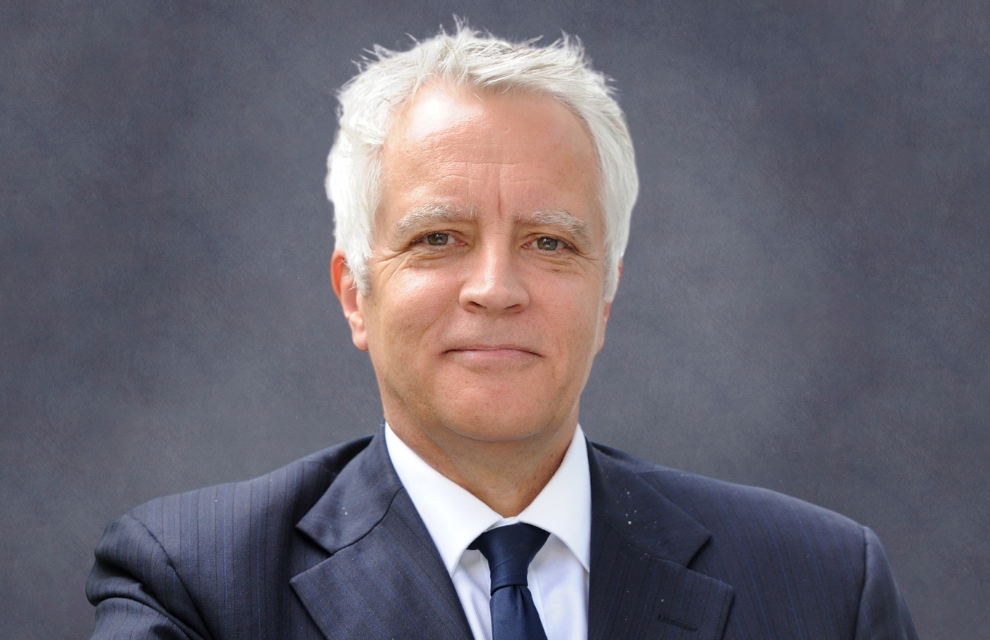ISLA
ISLA CEO Andrew Dyson speaks to Carmella Haswell on the Association’s call to action to support the development of securities lending markets in the Middle East in line with international standards and best practice
The International Securities Lending Association (ISLA) entered a partnership with law firm Latham & Watkins in September to promote the advancement of securities lending activities in the Middle East. The Association has now begun the gradual release of five reports as a call to action to analyse the gap between where the region is today and where it needs to be to support an active and resilient capital market.
Around 18 months ago, the Association formed a separate task force to focus on developing these markets across the Middle East, following comments from ISLA members that suggested more advocacy was required in the region by the international body. The project is member-led — this will be key in shaping how the Association reviews these jurisdictions.
Due to the sheer scale and gravitational pull in the region, Saudi Arabia became a key country of interest for the group. ISLA is also focused on other regions within the United Arab Emirates (UAE) such as Dubai, Abu Dhabi, Qatar and Kuwait. The reports will initially cover three of these jurisdictions, with the other two following soon after.
“Market participants favour one thing: certainty. When reviewing international markets, we ask ourselves: how is the market currently organised? How does it look in the context of securities financing and lending?”, says Andrew Dyson, ISLA CEO.
ISLA aims to provide a high level of scrutiny when reviewing these markets. Dyson indicates that the Association will review specific rules around lending and borrowing in these jurisdictions, as well as the key factors to consider for member firms interested in these markets. The research will allow Dyson and his team to form advocacy points to present to local policymakers and regulators — similar to the Association’s work across Europe.
Firms are very focused on the regulatory capital that sits around any particular position. Dyson states: “In our markets, because they are collateralised markets, typically participants can offset the collateral they have against a loan. Therefore, capital is calculated on the net exposure. This only works if you have legal certainty — so in the case of bankruptcy or other events, firms could offset their collateral against their loans.”
Some markets in the Middle East do not have legal certainty. As a result, investors are cautious about entering these markets. It becomes more expensive to trade in those jurisdictions because participants potentially have to “gross up” capital requirements. ISLA is working alongside legal partners in the region to review the environment and to propose changes to the fundamentals of bankruptcy rules in those domains.
The first publication to be released by ISLA is focused on Saudi Arabia; it is the first stage of response to the demand for further advocacy in the Middle East. Speaking to SFT, Dyson says: “It is just the beginning of a much broader engagement. We have analysed those key markets to assess the practicality for international and global participants of trading into and out of those locations."
Dyson intends to actively visit the Middle East in the next three to six months. In the next stage of the discussion, following the release of the reports, ISLA will communicate with legislative groups to discuss the role of netting in these jurisdictions. The five key regions of focus — Saudi Arabia, Dubai, Abu Dhabi, Qatar and Kuwait — will be evaluated separately and from different perspectives, due to the differing priorities of each region from a legal standpoint. Dyson adds: “We need to work with the stakeholders to understand how to attain a level of legal certainty and comfort that market participants need, because they then get the more favourable capital treatment.”
“We will have an active dialogue around this set of issues over the remainder of the year, which may lead to our own event in the region next year.”
An increasingly important market
“Global investors, our market, cannot ignore this region as it is a region of growth and vibrancy. The region is playing its accessibility card quite well as it is in easy reach of the rest of Asia and Europe, which presents opportunity,” states Dyson.
The region is experiencing strong demand from ISLA members eager to participate in the market. From a post-pandemic performance perspective, Dyson indicates that the Middle East secured a more positive position post-pandemic compared to other regions. The “fairly buoyant capital market” has a number of locally-led initial public offerings (IPOs) coming to market in the region.
Dyson explains: “In absolute terms, the Middle East is behind places such as North America, but the disproportionate growth in activity in those markets outstrips what we are seeing in Europe, and to an extent, in North America.”
Investors are buying more securities within the region, which is resulting in more of these securities coming through to lending programmes, he indicates. On the other hand, as alternative investment managers, particularly on the short side, begin to scrutinise those markets more broadly, Dyson notes, there is a demand to borrow securities.
It is imperative for ISLA to work hard to ensure the market liquidity provided by the securities finance and lending industry keeps pace with the growth in these markets. “The growth in the region is exponentially high compared to other markets in the world,” he continues. “It is an increasingly important market. This is no more than a mirror of what the global economy sees more broadly in the Middle East.” Reviewing the Association’s research and the key nuances highlighted through ISLA’s work on the Middle East at present, Dyson says the region is not as well developed as other capital markets.
The reports detail the current operational construct on how the capital markets work. Short selling is closely associated with securities finance and lending markets. When reviewing the availability of short selling in these jurisdictions, Dyson highlights the need to understand whether short selling is possible from a legal perspective, how it works from an operational standpoint, and whether there is sufficient supply to be able to borrow the required securities. The report also addresses collateral considerations associated with this activity.
“We have done a fairly detailed analysis of each of those markets to provide recommendations regarding what best practice should look like to create the outcomes we are looking for,” Dyson explains.
One of the largest challenges to forming a functioning securities finance and lending market in the Middle East is the ability to attain a clean netting opinion. In terms of the operational constructs of these five key markets, there are challenges around standardisation.
“We advise that rules and regulations around securities lending, financing and borrowing be relatively benign and standard across all jurisdictions,” Dyson confirms. “There should be a clear legal construct around lending and borrowing. There has to be a clear construct on offshore versus onshore participants, what their roles and responsibilities are, what they are allowed and not allowed to do. Where does collateral need to be held to ensure that it is properly in the mix in terms of enforceability?”
Future development of the Middle East
Looking ahead, ISLA anticipates the growth of the Saudi Arabia market to be exponential, predicting it will be “strong, powerful and sustained”.
This first stage of ISLA’s work in the region aims to put the securities financing and lending markets in a “very robust position” within those markets, according to Dyson.
He adds: “The requisite authorities within Saudi Arabia have been very welcoming. ISLA has maintained good dialogue with a number of individuals in the kingdom. They fully understand what we are trying to do — which is to bring a level of standardisation and certainty to markets.”
If Saudi Arabia moves forward with this development, Dyson anticipates that it will drag all of the other markets along with it. The whole region will become “a very vibrant capital markets arena that will attract international capital flows inwards”.
When attracting inward capital flows, it is imperative for international investors to see deep liquid markets with strong price transparency and have the ability to trade in those markets. Securities lending and borrowing is the agent that allows that to happen in an efficient way, he adds.
Dyson concludes: “We have put considerable resources behind this project. It puts us in a very strong position for further advocacy and additional market development. The opportunity in the Middle East is immense. It is about leveraging our work in Europe for the benefit of the development in the Middle East.”


